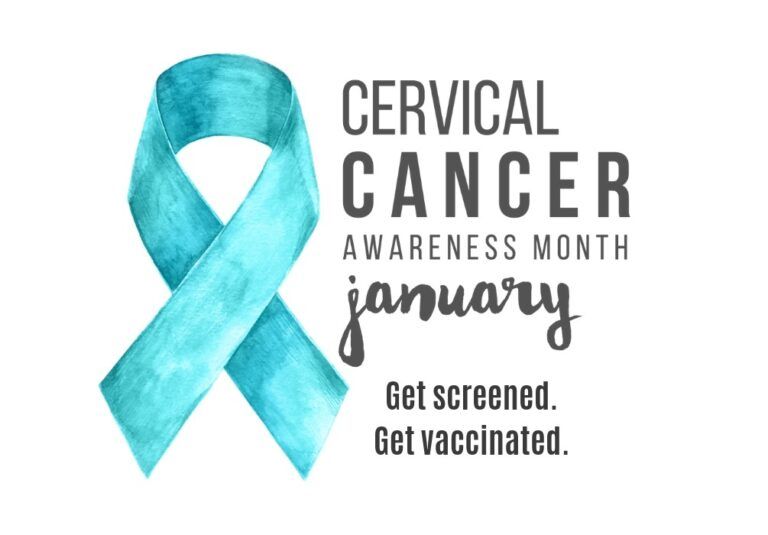January 2023 – Cervical Cancer Awareness Month

Cervical cancer develops in a woman’s cervix (the entrance to the uterus from the vagina). Almost all cervical cancer cases (99%) are linked to infection with high risk human papillomavirus (HPV), an extremely common virus transmitted through sexual contact. Although most infections with HPV resolve spontaneously and cause no symptoms, persistent infection can cause cervical cancer in women.
When diagnosed, cervical cancer is one of the most successfully treatable forms of cancer, as long as it is detected early and managed effectively. Cancers diagnosed in late stages can also be controlled with appropriate treatment and palliative care. With a comprehensive approach to prevent, screen and treat, we can end cervical cancer as a public health problem within a few generations.
On this Cervical Cancer Awareness Month, the messages are clear.
Get informed. Find out the facts about cervical cancer and the human papilloma virus (HPV) that causes it. Help educate other women in your life too.
Get screened. Cervical cancer screening typically starts at age 30 and is repeated periodically.
Get vaccinated. The HPV vaccine is given in 2 doses that should begin when a girl is between 9 and 14 years old

